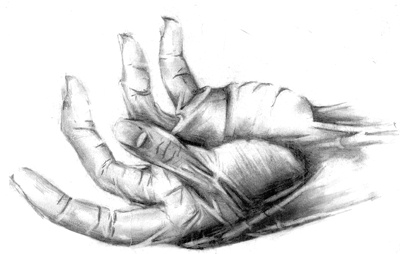All Nonfiction
- Bullying
- Books
- Academic
- Author Interviews
- Celebrity interviews
- College Articles
- College Essays
- Educator of the Year
- Heroes
- Interviews
- Memoir
- Personal Experience
- Sports
- Travel & Culture
All Opinions
- Bullying
- Current Events / Politics
- Discrimination
- Drugs / Alcohol / Smoking
- Entertainment / Celebrities
- Environment
- Love / Relationships
- Movies / Music / TV
- Pop Culture / Trends
- School / College
- Social Issues / Civics
- Spirituality / Religion
- Sports / Hobbies
All Hot Topics
- Bullying
- Community Service
- Environment
- Health
- Letters to the Editor
- Pride & Prejudice
- What Matters
- Back
Summer Guide
- Program Links
- Program Reviews
- Back
College Guide
- College Links
- College Reviews
- College Essays
- College Articles
- Back
Don't Be Afraid. Just Say It.
The world is a shelf upon which rest bobble heads who always nod and never question why they are nodding.
This is especially true when the average person is faced with art. In fear of seeming ignorant, they blindly praise the splatters on a canvas or the scribbles on a paper.
I apologize generalizing and exaggerating, but the majority of the people I’ve interacted with are dreadfully reluctant to give an honest opinion when interpreting art.
For the purpose of this article, I will be concentrating on poetry.
It may be that the idea of a poem carries the preconceived notion that it must have a meaning; therefore it is the duty of the reader to arrive at the intended meaning. It is true, but it cannot always be the case since some poetry is truly meaningless.
I proved this theory with an experiment in order to confidently criticize the majority. I wrote an incredibly horrendous poem and took it to a wide range of individuals. I concentrated on adults, people over the age of eighteen, but put no limits on gender, race, ethnicity, or class. I approached thirty people who represented various groups. I told each participant that I was working on a personal project where I recorded their reactions after a first read. I hoped this criterion would relax them so they wouldn’t feel obligated to arrive at ingenious explanations, but unfortunately, that was not the case.
My participants forced incredible meanings to my meaningless poem probably in fear of being labelled as non-artistic or non-creative.
I wrote the poem as random, disconnected lines, yet 8 of the participants complemented this randomness and raved about its role in adding to the meaning of the poem.
Due to the fact that many were complementing my disastrous poem, I took some time to apply their interpretations to the poem to see whether they could work. After considerable time spent in attempting to connect an interpretation to a poem, I realized there was none.
A few people described their feelings they experienced when they read the poem, which is completely legitimate. However, the majority were picking out themes and symbols I had not even subconsciously considered when writing the poem.
Luckily for the validity of this experiment, my English professor, Dr. Paul Budra, saw the poem for what it was: bad. My happiness was hard to conceal when his first words after his first read were “I hate it”.
He went on about the awful imagery, the lack of structure, the bad rhyming, and the confused anecdote. He attacked the poem and displayed no hesitancy as he said, “This poem sucks”.
It was clear to me that the majority of the people are afraid of talking about poetry in complete honesty and as a result, fail to use a critical eye when viewing art. This is not just for art, but many other things as well, such as bias. The regular American may not be able to distinguish the obvious Conservative bias in many American newspapers.
It must be agreed upon that bad poetry exists. People should not hesitate to say they don’t understand the poem, because there is a chance, the poem has no meaning!
I am grateful for my English professor who exists as an honest and critical hope for humanity in these times of blind praise for bad poetry.
So criticize, criticize, criticize and let the modern day Marx’ and Machiavellis thrive!

Similar Articles
JOIN THE DISCUSSION
This article has 0 comments.
